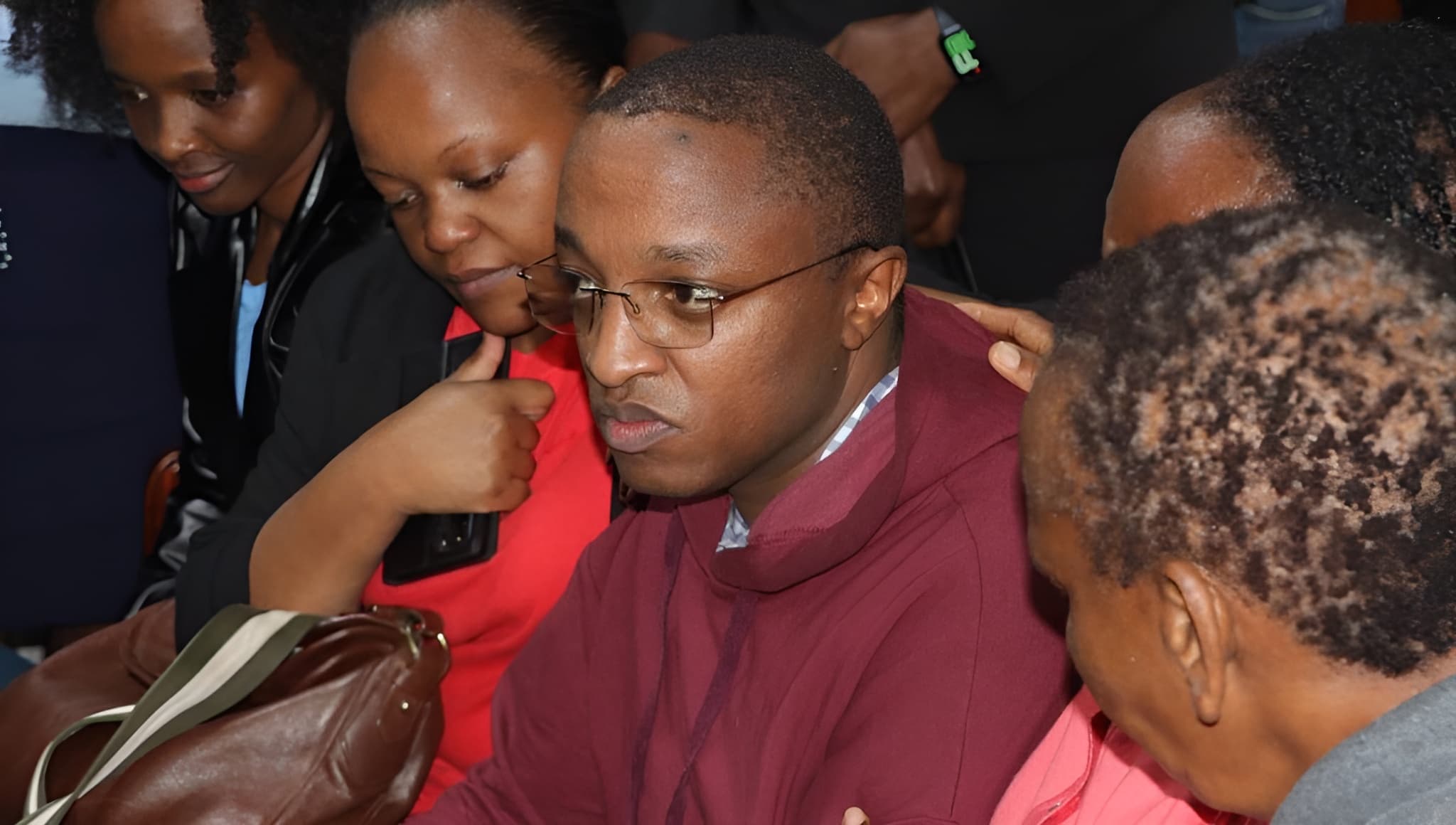We're loading the full news article for you. This includes the article content, images, author information, and related articles.
A Nairobi court has blocked IT expert and government critic Ndiang'ui Kinyagia from travelling to India for a family medical emergency, citing an ongoing cybersecurity probe. The decision highlights the growing tension between individual rights and state security investigations in Kenya.

NAIROBI, KENYA – A Nairobi court on Tuesday, November 11, 2025, denied a request for the temporary release of a passport belonging to prominent IT expert and social media commentator Ndiang'ui Kinyagia, who sought to accompany his ailing sister for urgent medical treatment in India. The ruling keeps the outspoken government critic grounded in Kenya as he remains a person of interest in an active, albeit undisclosed, cybersecurity investigation.
During the hearing, the Office of the Director of Public Prosecutions (ODPP) argued that releasing Mr. Kinyagia's travel documents would compromise their ongoing inquiry. A state counsel told the court, “I am inclined to object to the release of the documents as it will compromise the ongoing probe,” a position reported by multiple news outlets on November 10 and 11. The prosecution stated that investigators had seized several documents and electronic devices from Mr. Kinyagia and that the DPP's office was reviewing the file for possible charges related to the misuse of confidential digital data and potential breaches of cybersecurity laws.
Mr. Kinyagia’s legal counsel countered that the need for travel was a time-sensitive family emergency. “Health does not wait: the travel to India is an emergency,” his lawyer argued, emphasizing that the state has held his client's passport and yellow fever card without providing specific reasons or filing formal charges. His lawyers have contended that the continued seizure of his personal and professional items, which reportedly began several weeks ago after a raid on his premises, is arbitrary and violates his constitutional rights to movement and property.
Despite the plea, the court declined to issue interim orders for the passport's release. Instead, Mr. Kinyagia was directed to file formal written submissions on the matter. A definitive ruling on the application is now scheduled for Thursday, January 15, 2026.
The court case unfolds against a backdrop of heightened scrutiny of Mr. Kinyagia by state authorities. Known for his vocal commentary on governance and technology via social media, he became a person of interest to the Directorate of Criminal Investigations (DCI) earlier this year. In June 2025, the DCI investigated him over a viral social media post it deemed “inflammatory.” His subsequent disappearance for several days sparked public outcry before he resurfaced at the Milimani Law Courts on July 3, 2025. At that time, the High Court barred police from arresting him.
Mr. Kinyagia has maintained his innocence, with his legal team suggesting the investigation is politically motivated. The case draws attention to the delicate balance between national security imperatives and the fundamental rights of citizens, particularly those who are critical of the government online. The rise of digital activism in Kenya has been met with increased state surveillance, raising concerns among human rights advocates.
Kenyan courts have shown varied approaches to such applications. In a separate case reported on November 10, 2025, a court ordered the release of the passport of Dan Achola Okoth, son of a former governor, to facilitate a business trip abroad. Conversely, in an August 2025 ruling, the Milimani Law Courts denied a similar travel request for a businessman facing fraud charges, indicating that judicial discretion is heavily influenced by the specifics of each case, including the nature of the allegations and the perceived flight risk. As Mr. Kinyagia awaits the January 2026 ruling, his situation remains a focal point for discussions on digital rights, due process, and the rule of law in Kenya.
Keep the conversation in one place—threads here stay linked to the story and in the forums.
Sign in to start a discussion
Start a conversation about this story and keep it linked here.
Other hot threads
E-sports and Gaming Community in Kenya
Active 9 months ago
The Role of Technology in Modern Agriculture (AgriTech)
Active 9 months ago
Popular Recreational Activities Across Counties
Active 9 months ago
Investing in Youth Sports Development Programs
Active 9 months ago